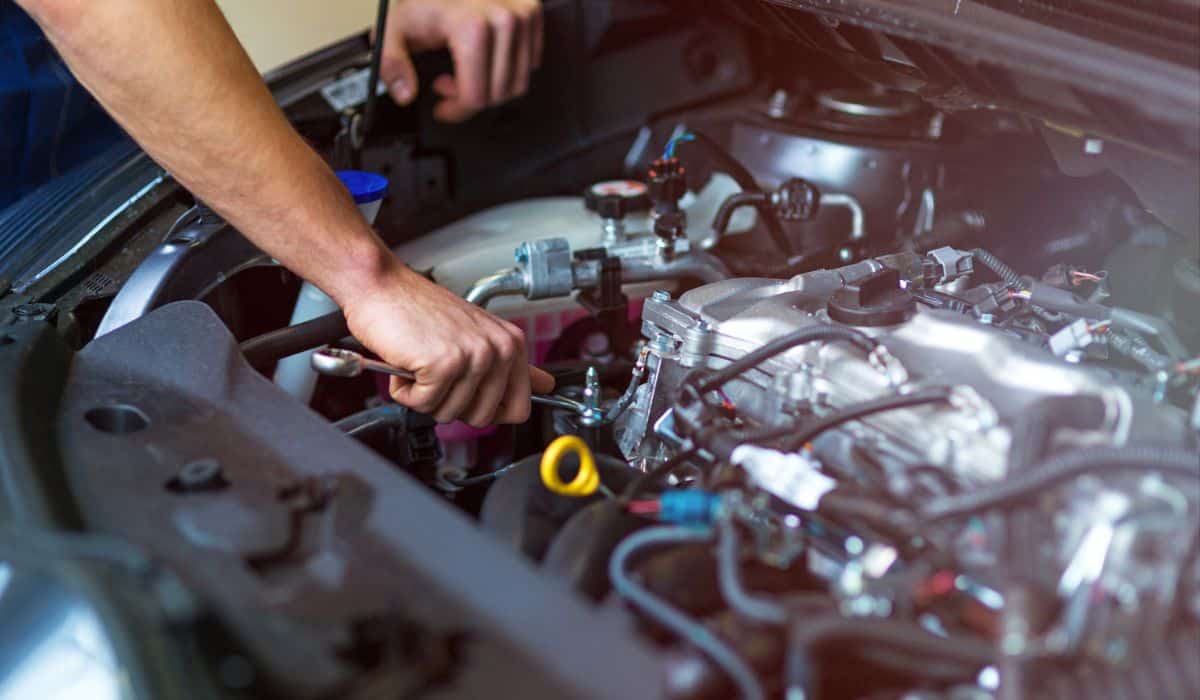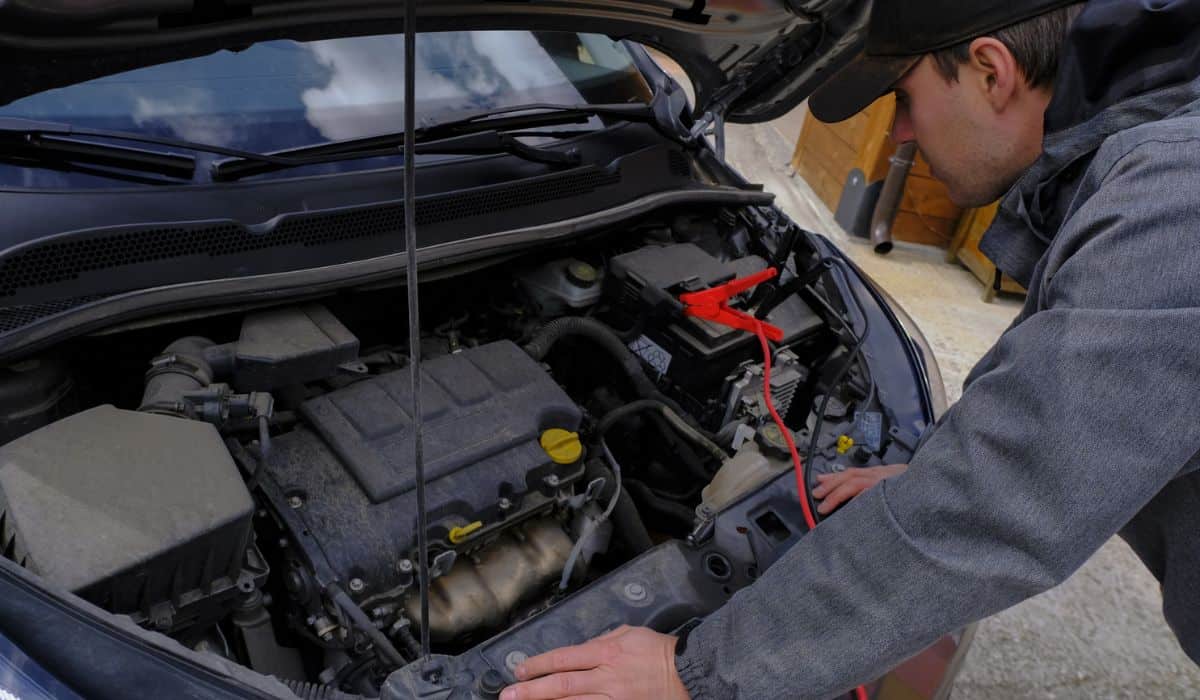Car Engine is Shaking? Here Are the Possible Causes
Engine vibration is a subtle problem, so it usually creeps up on you as it gradually gets worse. Ignoring it can lead to additional damage to your engine. But why do cars sometimes shake, and how do you fix it?
An engine can shake excessively for several reasons, including loose or disconnected hoses, worn-out spark plugs, or a problem with the tires. Hold off on driving your car when experiencing engine vibration and get it checked by a professional mechanic to avoid further damage.
If your car is shaking excessively, you should diagnose the problem ASAP. Doing so can be a hassle, but it’s worth saving your car (and your wallet) from bigger trouble down the line. Let’s discuss reasons why your engine can vibrate and what you can do to to address the issue.
Why Is My Car Engine Shaking?

It’s normal for your engine to vibrate slightly while driving because of the movement of the transmission gears, crankshaft, and other vital components.
But if this vibration is more intense than usual and is accompanied by rattling noises from the engine compartment, then it’s a cause for concern. Successfully identifying the reason for these vibrations will make it easier for you to discuss these issues with your auto repair service.
Common reasons for engine vibration include:
Worn-Out Spark Plugs
Old or worn-out spark plugs can cause your engine to shake or vibrate uncontrollably. Worn-out plugs prevent the fuel-air mixture from properly igniting in the cylinders, leading to misfire or incomplete combustion.
As a result, your car engine will vibrate because of cylinders misfiring at running speeds or during idling. Your check engine light will come on and even begin to flash. The best solution to such vibration-related issues is the installation of new spark plugs.
Disconnected or Loose Hoses
Loose or disconnected hoses are another reason that can cause your car engine to vibrate.
Hoses play the important role of carrying radiator coolant and air-fuel mixture to the engine. If they fail to do so, then the engine isn’t properly fed and therefore will vibrate while idling and at running speeds.
By replacing the damaged hoses or reattaching the loose ones, you can overcome this problem.
Broken Motor Mounts
Motor mounts support the car engine and absorb the road shocks and engine vibrations.
If your car engine is vibrating excessively, or if the vehicle is shaking violently when parked with the engine running or while stopped at a red light, then it’s highly possible that the transmission mounts or the motor mounts are broken or damaged.
You can further confirm if this is the problem by putting your car in neutral to see if the vibration decreases. A decreased vibration is a sure sign that the problem lies with the engine mounts.
Be sure to have your engine inspected and the mounts replaced by a professional mechanic.
Damaged Timing Belts
Timing belts ensure the proper functioning of many crucial components of your engine. Fans and other belt-driven parts will not be able to rotate or turn at a consistent speed in case the timing belt is damaged or loose. As a result, your engine will vibrate profusely, and you’ll hear strange rattling sounds.
Regular inspection of belts to ensure they are tight and in good working condition and replacing worn-out ones will help resolve this issue easily.
Improper Fuel Intake Adjustment
A fuel system that isn’t properly calibrated or adjusted can cause engine vibrations even when the car engine is idling. This happens because the engine is deprived of the correct fuel-air combination due to improper fuel intake adjustments.
Cleaning the fuel intake system and adjusting the carburetor’s idle speed can help rectify this issue.
Worn-Out Steering Parts
Problems with the steering system can also cause your engine to shake and vibrate. Steering parts typically become worn out with usage. As a result, the steering becomes less responsive over time.
If you notice that your steering is fine while driving straight but shakes when you drive around a curve, it’s possible that your tie rod rods have worn out.
However, if your steering wheel shakes while driving straight but not while you turn, it’s an indication that you need to replace the ball joints.
Tire Issues
Another common reason for car engine vibration is a problem with the tires.
Potential issues include:
They’re Out of Balance
If you feel your engine’s vibration is minimal at low speeds but increases as you speed up, then there’s a good chance it’s because your tires are out of balance. To check whether this is the reason, check for flat spots on the tires.
You can easily resolve this issue by getting your tires rebalanced. However, if your tires are excessively damaged, then you’ll need to replace them.
They’re Underinflated or Have Uneven Wear
Underinflated tires and other problems with tires including uneven tire wear, damaged wheels, separate tire tread, loose lug nuts, or out-of-round tires can also cause your car to vibrate while driving at high speeds.
Performing routine check-ups and maintaining the tire air pressure according to the recommendations provided in the owner’s manual can protect your tires from a blowout.
What To Do if Your Engine is Shaking

In case you begin to feel persistent vibration in your car engine, then the best course of action is to resolve the issue before continuing to drive.
Driving your car with the engine shaking can further damage your engine, ruin your tires, and incur other costly problems that could be easily avoided by visiting your mechanic.
